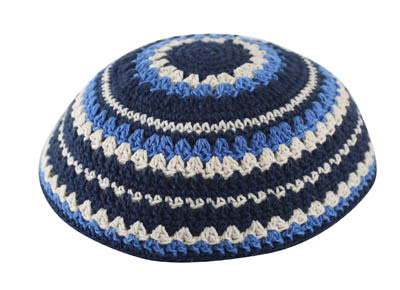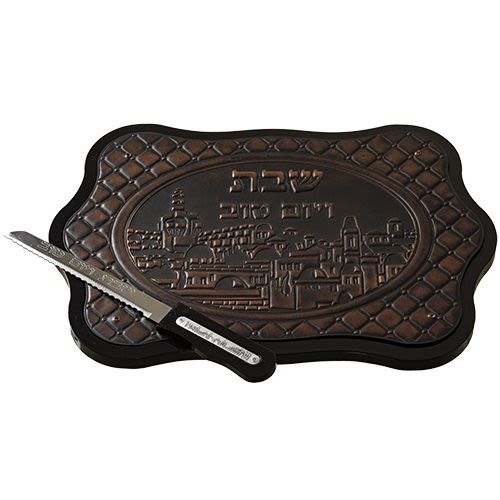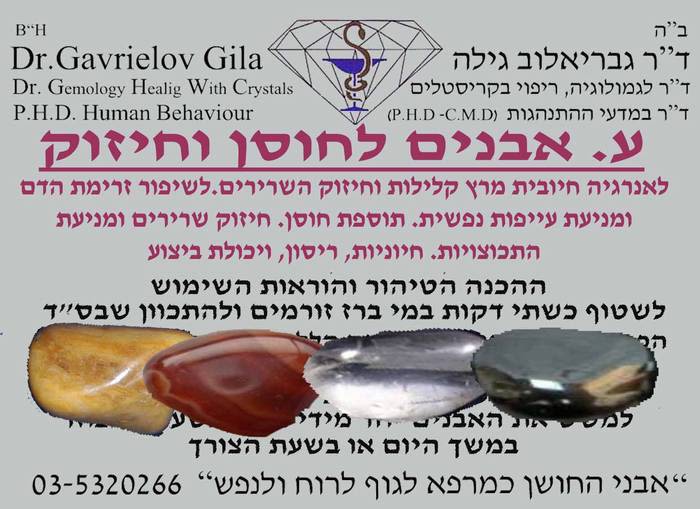
Avoiding Jealousy
Jealousy is the main cause of evil. The Primordial Snake evoked Adam and Chava’s jealousy, as it says, “For God knows that on the day you eat from it your eyes will be opened...

The Torah says: “Jealousy rots the bones.” If a person is never jealous, his bones will not rot in his grave, and during his life he will not suffer from bone ailments. As the Sages say, “Jealousy, physical desires and chasing honor remove a man from this world.”
The Midrash states: “When the leadership of the Jewish people passed from Moshe (Moses) to Yehoshua (Joshua), Moses said, ‘It would be preferable to suffer a thousand deaths rather than one jealousy.’”
Moshe was jealous that his protégé, Yehoshua, had taken over the leadership of the Jewish nation. Jealousy is worse than many types of suffering.
Jealousy is the main cause of evil. The Primordial Snake evoked Adam and Chava’s (Eve’s) jealousy, as it says, “For God knows that on the day you eat from it [the Tree of the Knowledge of Good and Evil] your eyes will be opened and you’ll be like God, knowing good and evil.” The snake caused them to become jealous of God, instead of being satisfied with their status as created beings.
Emuna and Jealousy
There is a direct correlation between jealousy and emuna, belief in the Almighty: the greater our emuna, the less our jealousy; the less our emuna, the greater our jealousy.
The holy Zohar teaches that emuna is based on the belief in the World to Come. Lack of belief in the World to Come signifies a lack of belief in the Creator, which, in turn, demonstrates a lack of emuna. In the words of the Zohar: “The name of God – Elokai – this is the start of faith, meaning that he remembers the World to Come.”
When someone is jealous of another’s material belongings, it demonstrates that his interests lie in This World alone, and that he is are far from fulfilling his true purpose in the world. When someone has emuna, however, he understands that he is fulfilling his true purpose and therefore he is not jealous of others. He realizes that God gave each person exactly what he needs to fulfill his purpose in This World.
Sometimes God creates a person to be unattractive, because He knows that this individual needs that test to perfect himself. Another person may be handicapped. When we have emuna, we understand that these people need to deal with that specific problem to rectify whatever it is that they must rectify. When we have emuna, we can look towards our ultimate purpose and retain a positive self-image, despite the problems we encounter. Eventually, we will come to understand that this problem was the catalyst for our ultimate success.
Rabbi Yehoshua ben Chananyah was a great Torah scholar. He was deformed and ugly. The Caesar’s daughter saw him and asked: “How is it that such great wisdom is contained in such an ugly container?”
He answered: “Why does your father, the Caesar, who is so wealthy, keep wine in clay vessels instead of gold or silver?”
The daughter was ashamed and commanded the servants to pour all the wine into golden vessels. Some time later, the Caesar discovered that the wine had turned to vinegar. When he asked how such a thing had happened, his servants answered that his daughter had commanded them to store the wine in gold vessels. The Caesar asked his daughter for an explanation, and she told him what Rabbi Yehoshua had said to her. The Caesar commanded Rabbi Yehoshua to appear before him, and he asked him to explain why he had said that to his daughter.
Rabbi Yehoshua answered: “Your daughter asked me how wisdom could be in such an ugly container, and this was my answer. Wine is the symbol of wisdom, and it keeps well only when it is in a clay vessel and not a golden one” (Taanit 7).
Rabbi Yehoshua’s deformity was necessary for his perfection. Since he understood that, he was able to become a great Torah leader without allowing himself to be bothered by his seeming “problem.” A person living solely for This World, however, would be crushed by the fact he was so ugly.
Divine Providence determines for each of us the conditions we need to fulfill our purpose in this world: if we are tall or short, thin or fat, rich or poor, strong or weak, quick or slow. With emuna we accept who we are with joy and are not jealous; we seek to fulfill the role we’ve been given with the tools we’ve been given.
The Solution
The solution for a person who finds he has jealousy, then, is to pray to God that He will grant him emuna – so that he will understand on both an emotional and intellectual level that he has come to this world on a mission, that he needs to pass tests here, and that he should have joy in the portion God has given him. That portion is perfectly suitable for what he needs to accomplish.
One person may need to pass the test of poverty, for example, and must learn to depend on God for his needs. In this way, he will continually grow closer to God, which is an eternal good, better than all the riches in the world. With emuna, he won’t be envious of the wealthy, because he realizes that it’s for his own benefit that God denied him wealth. Other peoples’ wealth have no relation to him and his purpose in the world.
On the other hand, a wealthy person faces a different test. He has to remember to be humble and remind himself that his riches are not really his, since his wealth is only a deposit from the true Master of all wealth. He must avoid arrogance and give of his riches to charity as his Creator commanded.
In truth, the test of wealth is more difficult than the test of poverty. The poor man doesn’t have much choice; he must rely on God. The rich man, however, must avoid attributing his success to his own intelligence and power. In other words, he has to fight arrogance. In addition, he must contend with all the hassles of maintaining his property, while somehow remaining happy with his portion and mission in life, and not jealous of those who live a more simple life.
We were given free choice in the spiritual realm, everything else is by Divine decree. Therefore, we cannot take credit for our success, nor can we be jealous of another’s success. Everything is determined from Above. The Ben Ish Chai writes about a man who tried to everything possible to be unsuccessful, yet he was a success! That’s because, when God decrees that someone will be successful, there’s no way to prevent it.
The opposite is also true. If it’s been decreed that a person will not be successful, he will not be successful. The Ibn Ezra was extremely poor. He tried his hand at different businesses, but without success. He would joke about himself, “Poverty clings to me. If I were to manufacture candles, the sun would never set; if I were to weave burial shrouds, people would stop dying!”
With emuna, we understand that God watches over each and every one of us with hasgachas pratis – Divine Providence – so that He is giving us, with exact precision, the tikkun we need to accomplish what we need in this world, according to the root of our soul and its previous reincarnations, and according to our character traits and qualities – both physical and spiritual. If we understand that, we will never be jealous of another.
In Rebbe Nachman’s Stories, there’s a story about a shoemaker:
When he finished a shoe it invariably had a triangular shape, because he could never master his craft. He would take the shoe in his hand and praise it extensively, enjoying the results of his labor. “My wife,” he would say, “Look how beautiful this shoe came out. It’s a really sweet shoe, a shoe made of honey and sugar!”
She would ask, “If that’s so, why do the other shoemakers get three rubles for a pair of shoes, and you get only one and a half?”
He would answer, “What’s the difference to me? This is my work, and that is his. Besides, why should we speak about others? Let’s look at how much I profit from this shoe: there’s the cost of the leather, glue, threads and other materials…oh, and there’s the padding between the layers, it all adds up to such and such. It turns out I gain a net profit of ten pennies, so what difference does it make for such a net profit?” And so he was always full of joy.
The shoemakers wife tried to arouse her husband’s jealousy by telling him how much more successful the other shoemakers were, but he rejected her claims. He only looked at how he could fulfill his tikkun with the tools that were at his disposal. It was the God’s Providence that he should make poor shoes, and he was happy with what he did because that is what God gave him. In fact, this simple Jew eventually achieved great heights in the merit of his wholeheartedness and joy in life.
In summation, we should work on ourselves to attain emuna that God is watching over us, and that all our seeming problems trials and lack of success (or success) are for our tikkun – rectification. This is the exact test that we need, because only through overcoming these trials can we come close to God, which is our purpose in existence. Therefore we should be happy with our portion, which means that we should be happy with what we have, because it’s for our benefit. With that emuna, we won’t be jealous of others and we’ll do what we are supposed to do – work on our tikkun – without comparing ourselves to those around us.
May God help us to become close to Him. May we have complete emuna and not be jealous. May we focus on our own avodas God – Divine service – and fulfill our purpose in This World in the best way in joy and love. Amen.










Tell us what you think!
Thank you for your comment!
It will be published after approval by the Editor.